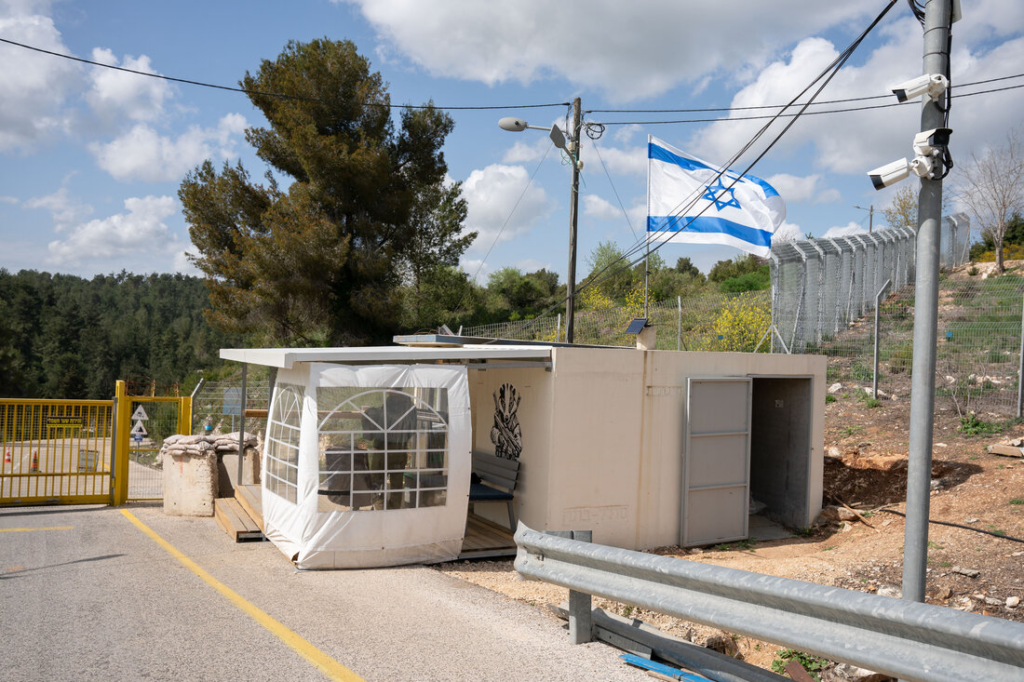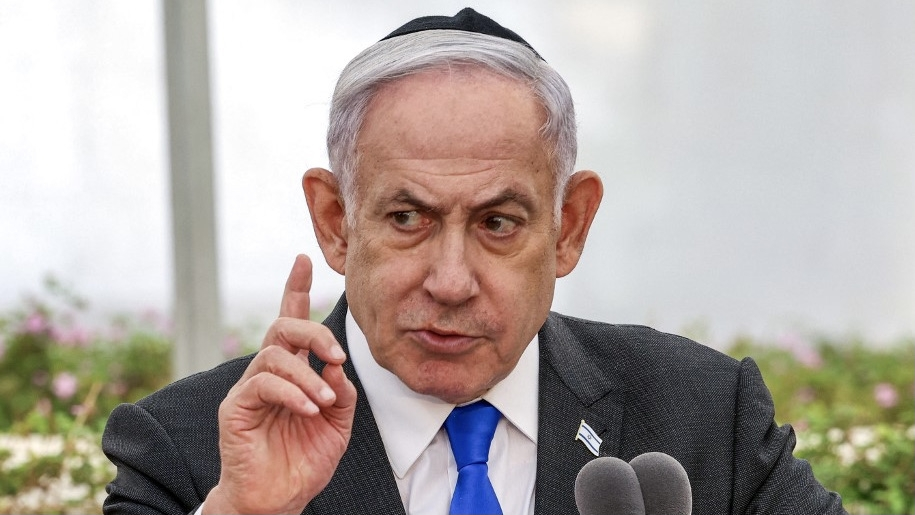In recent weeks, tensions along the Israel-Lebanon border have escalated dramatically as Hezbollah and the Israeli Defense Forces (IDF) have exchanged fire near United Nations Interim Force in Lebanon (UNIFIL) outposts.
Israel has accused Hezbollah of using UN positions as shields to launch attacks, raising serious concerns about the safety of UN peacekeepers, including troops from India stationed along the Blue Line.
The Ministry of External Affairs (MEA) has urged all parties to respect UN premises and ensure the safety of those serving in the peacekeeping mission.
Hezbollah’s Alleged Use of UN Outposts as Shields: Israel’s Response to Attacks on Peacekeepers
Hezbollah, a powerful Shiite militant group based in Lebanon, has long been a key player in the conflict between Lebanon and Israel. The group’s involvement in border clashes has led to widespread regional instability. Recently, Israeli officials have accused Hezbollah of taking cover behind UNIFIL posts and using them as shields to fire at Israeli targets.
According to Israel’s ambassador to India, Reuven Azar, Hezbollah’s actions are not only endangering Israeli forces but also putting the lives of UN peacekeepers at risk. He condemned these actions as “criminal” and stated that Hezbollah’s strategy is a clear violation of international law and UN principles.
Read : 43-Foot-Tall Naked Statue of Donald Trump Removed in Less Than 48 Hours
Israel has raised alarms about the proximity of Hezbollah’s operations to UNIFIL outposts, which serve as peacekeeping bases along the 120-kilometer Blue Line demarcating the border between Israel and Lebanon. The Blue Line was established by the UN in 2000 to confirm Israel’s withdrawal from Lebanon after years of military occupation.
Read : Controversy Erupts Over Rape Scene in Donald Trump Movie ‘The Apprentice’
Since then, it has been a flashpoint for periodic violence between Hezbollah and Israel. Hezbollah’s alleged use of UN posts as shields, however, marks a troubling new development that could have far-reaching consequences for the peacekeeping mission and the region.
UNIFIL, which consists of peacekeepers from various countries, including India, Indonesia, and others, has been tasked with maintaining peace and stability along the Israel-Lebanon border.
Their mandate includes preventing hostilities between Hezbollah and Israel, ensuring that both sides respect the Blue Line, and providing humanitarian assistance to the local population. However, the recent clashes have made it increasingly difficult for UNIFIL to carry out its mission effectively.
Two Indonesian peacekeepers were injured in Israeli strikes on UNIFIL headquarters in southern Lebanon, highlighting the precariousness of the situation.
Israel’s Response and Concerns for UN Peacekeeper Safety
In response to the escalating violence and Hezbollah’s alleged use of UN positions, Israel has vowed to take measures to protect its own forces as well as the safety of UN peacekeepers. Israeli officials maintain that Hezbollah’s use of UNIFIL outposts as shields is not only a violation of international law but also a deliberate attempt to provoke conflict and further destabilize the region.

Reuven Azar, Israel’s envoy to India, stated that Israel will continue to take “necessary steps” to ensure the safety of UN peacekeeping forces and coordinate with all responsible stakeholders.
The Israeli government’s stance underscores the difficulty of balancing military objectives with the need to protect civilians and peacekeeping personnel. The IDF has conducted targeted strikes in areas where Hezbollah has been operating, but these strikes have sometimes resulted in collateral damage to UNIFIL infrastructure.
While Israel insists that it is not deliberately targeting UN peacekeepers, the close proximity of Hezbollah’s activities to UN outposts makes it difficult to avoid unintended casualties.
The Ministry of External Affairs in India has expressed deep concern about the deteriorating security situation along the Blue Line. With 600 Indian soldiers participating in the UNIFIL mission, the safety of Indian peacekeepers is a top priority.
In an official statement, the MEA emphasized the need for all parties involved to respect the inviolability of UN premises and to take appropriate measures to protect the safety of peacekeepers. This sentiment was echoed by other countries contributing troops to UNIFIL, as the safety of their forces is increasingly at risk amid rising hostilities.
UNIFIL’s mandate includes cooperation with both the Lebanese Armed Forces and the Israeli military to prevent further escalation, but its ability to fulfill this role is being severely tested by the current conflict.
The recent injuries to Indonesian peacekeepers have drawn international attention to the dangers that peacekeeping forces face in this volatile environment. The possibility of further casualties among UN personnel has raised alarms in the international community, with calls for both Hezbollah and Israel to de-escalate the situation.
Broader Implications for the Region and International Diplomacy
The escalating violence between Hezbollah and Israel, compounded by the use of UN positions as shields, has far-reaching implications for the entire Middle East.
The situation along the Blue Line is a microcosm of broader regional tensions, involving not just Lebanon and Israel but also other key actors such as Iran, which backs Hezbollah, and the United States, which supports Israel.
The conflict risks drawing in other regional players and could potentially destabilize an already fragile balance of power in the Middle East.

For the UN, the situation raises critical questions about the future of peacekeeping missions in conflict zones. UNIFIL has been stationed in Lebanon since 1978 and has faced numerous challenges over the years, but the recent clashes have highlighted the growing complexity of its role in the region.
The UN Security Council, which oversees UNIFIL’s mandate, may be forced to reassess the mission’s objectives and consider additional resources or strategies to ensure the safety of peacekeepers and the effectiveness of their operations.
The use of UN posts as shields also sets a dangerous precedent for other conflict zones around the world. International humanitarian law prohibits the use of civilian infrastructure, including UN premises, for military purposes. Hezbollah’s alleged actions not only violate these principles but also undermine the credibility and neutrality of the UN.
If non-state actors like Hezbollah can exploit UN posts without facing significant consequences, other militant groups in conflict zones may follow suit, putting more peacekeepers at risk.
In the context of international diplomacy, the deteriorating situation along the Blue Line has prompted a flurry of diplomatic activity. Countries contributing troops to UNIFIL, including India, Indonesia, and European nations, have called for immediate de-escalation and dialogue between Israel and Lebanon.
The United Nations has also appealed for restraint, urging both sides to respect the Blue Line and to avoid further endangering peacekeeping forces. However, achieving a lasting solution to the conflict will require addressing the deeper political and territorial disputes that have fueled tensions between Hezbollah and Israel for decades.
The role of the international community, particularly powerful actors such as the United States, the European Union, and Russia, will be critical in preventing the conflict from spiraling out of control.
Diplomatic pressure on both Israel and Hezbollah, combined with support for UNIFIL’s mission, could help create the conditions for a ceasefire and a return to more stable conditions along the Blue Line.
However, the path to peace will be fraught with challenges, particularly as regional powers continue to jockey for influence in Lebanon and the wider Middle East.
The recent clashes between Hezbollah and Israel along the Blue Line, coupled with the use of UN outposts as shields, have raised serious concerns about the safety of UN peacekeepers and the future stability of the region.

While Israel has vowed to protect its forces and UN personnel, the proximity of Hezbollah’s operations to UNIFIL outposts has made the situation increasingly volatile.
As tensions continue to rise, the international community must work together to ensure that peacekeeping forces can operate safely and effectively, while also addressing the root causes of the conflict.
For countries like India, which has a significant contingent of peacekeepers stationed in Lebanon, the stakes are high. The MEA has called for respect for UN premises and the safety of all peacekeeping forces, echoing the concerns of other nations contributing troops to UNIFIL.
As the situation unfolds, it is clear that de-escalation and dialogue are urgently needed to prevent further violence and protect the lives of those serving in the peacekeeping mission.
let’s enjoy few years on earth with peace and happiness….✍🏼🙏

